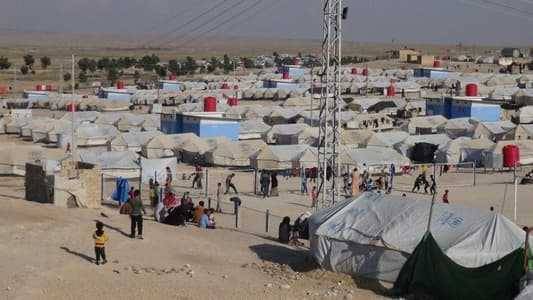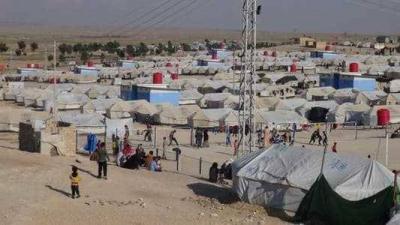The events of the first day of the Brussels 8 Conference yesterday confirmed the European Union's decision to continue its aggressive policies against the Syrian government for at least another year. The focus of European priorities has shifted mainly towards the war in Ukraine, indicating that the issue of Syrian displacement in Lebanon will remain unresolved. This was clearly expressed by European Commission Vice President Josep Borrell, who held the Syrian government and President Bashar al-Assad responsible for the displacement crisis without offering any tangible shift in stance toward Damascus, despite divisions within the EU regarding the crisis.
While Foreign Minister Abdullah Bou Habib led the Lebanese delegation at the conference, reflecting a near-consensus among Lebanese officials and legislators on the Syrian displacement issue in his speech, supporters of the Free Patriotic Movement, the Lebanese Forces, and the Marada Movement protested nearby, continuing the populist policy that has intensified following European Commission President Ursula von der Leyen's visit to Beirut, as reported by "Al-Akhbar."
Aside from the controversy surrounding the displacement issue, as referred to by Marada leader Sleiman Frangieh a couple of days ago, political factions and the government recognize the necessity of securing any funds from the European Union to support humanitarian operations by the UN Refugee Agency and other UN organizations, especially since aid for Syria remains rejected by France and Germany at least. On this basis, an agreement was reached among the Lebanese government, the Ministry of Foreign Affairs, and relevant ministries, including the Ministry of Social Affairs, with the support of the Parliament, on not refusing international assistance, to avoid Lebanon bearing the burden of displacement alone. According to figures, Lebanon's aid requirement for 2024 to cover Syrians and Lebanese will reach approximately $2.72 billion, of which around $1.38 billion was secured last year, while UN sources mention an effort to reach $1.4 billion during the conference.
Despite the negative stance of the EU, it is no longer possible to conceal the significant disparity between Germany and France, which are committed to maintaining hostility towards Syria, and other countries calling for engagement with Damascus to alleviate the European crises stemming from the Syrian crisis. Leading this group are Italy, Greece, Austria, Spain, Portugal, the Czech Republic, and Cyprus. These countries propose that new steps should emphasize early recovery as a strategy to transition from dependency on humanitarian aid to self-reliance by revitalizing local economies to mitigate the crisis faced by Syrians and facilitate returns. This project was discussed in 2022 but was hindered by German and French rigidity against any initiatives towards Syria. This division was articulated by Austrian Federal Interior Minister Gerhard Karner, who indicated that an alliance is currently being formed to clarify how to approach this issue (refugees), while Federal Foreign Minister Alexander Schallenberg is also looking into this matter, but ultimately there must be discussions (with the Syrian state), otherwise, no flights can land in Syria.
Bou Habib stated he was presenting a unified Lebanese stance to the conference, as articulated by the Lebanese Parliament's recent recommendation to the Lebanese government during a session held about two weeks ago in Beirut, reflecting an unprecedented Lebanese consensus that the country, including its government and all social, regional, sectarian, and party strata, has reached a point of no return regarding enduring the status quo and continuing the policies followed for over thirteen years regarding the Syrian displacement issue. He said: “We came today to propose solutions aligned with Lebanese and international laws and outside the mindset that has prevailed since the onset of the crisis. Sustainable solutions that ensure the dignified and safe large-scale return of Syrian displaced persons to their country. For those unable to return for political reasons, we call for their resettlement in a third country, in respect of the principle of international humanitarian law concerning burden-sharing.”
Bou Habib discussed the relationship with the United Nations High Commissioner for Refugees, indicating that the Ministry of Foreign Affairs aims to encourage collaboration between the Commission and relevant ministries and security and military agencies to provide suitable and immediate conditions for the safe return of Syrian displaced persons. A memorandum of understanding was signed with the Commission for the transfer of displaced persons' data, which it has not complied with. While the Commission claims there are agreements preventing it from delivering full data to protect Syrians, especially the opposition, Bou Habib affirmed that the data requested by Lebanon is a sovereign national right, crucial for classifying Syrians in Lebanon, and the Lebanese government has full authority to request this data and utilize it to organize the Syrian presence in Lebanon according to "Al-Akhbar."




